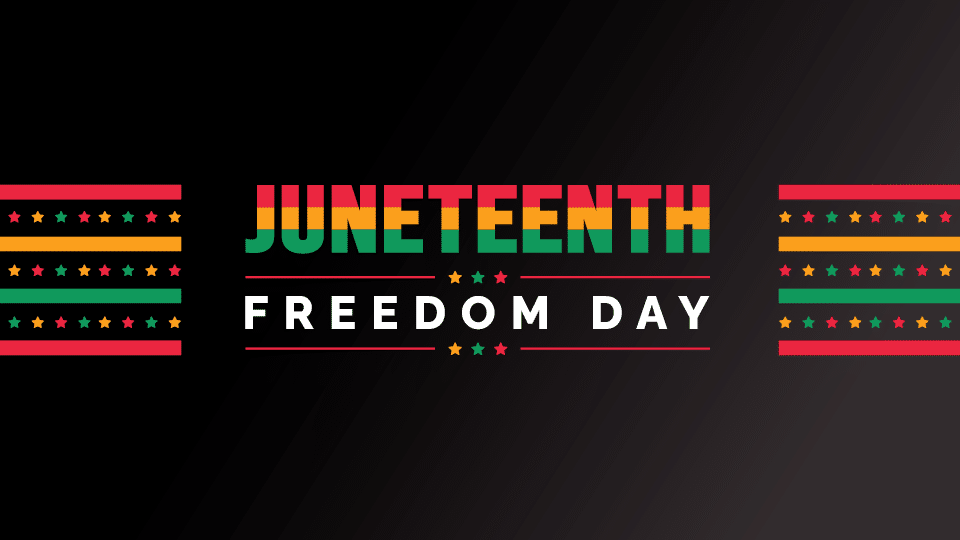Juneteenth National Independence Day: What to Know About the Federal Holiday

The Importance of Juneteenth National Independence Day
Juneteenth National Independence Day holds profound historical and cultural significance in the United States. Celebrated annually on June 19, it commemorates the day in 1865 when Union General Gordon Granger arrived in Galveston, Texas, to announce the end of slavery — more than two years after President Abraham Lincoln signed the Emancipation Proclamation. This delay in freedom for many African Americans symbolizes both the painful legacy of slavery and the enduring fight for justice and equality.
The official recognition of Juneteenth as a federal holiday in 2021 marked a critical moment in acknowledging the long-overlooked history of African American emancipation. It is now one of only a few national holidays that honor the struggles and achievements of a specific racial or ethnic group. By observing Juneteenth 2025, Americans are given the opportunity to reflect on the injustices of the past while celebrating progress and resilience in the present.
More than just a historical date, Juneteenth 2025 serves as a powerful reminder of the ongoing journey toward racial equity. In a time when conversations about systemic racism and social justice are central to national discourse, this holiday provides space for education, dialogue, and action. Schools, cultural institutions, and communities across the country use Juneteenth to host educational events, public discussions, and cultural celebrations that highlight African American contributions to society.
Furthermore, recognizing Juneteenth as a public holiday elevates the significance of African American history within the broader national narrative. It promotes awareness and understanding among people of all backgrounds, fostering a more inclusive and truthful retelling of American history.
The celebration of Juneteenth Holiday also strengthens community ties. Festivals, parades, musical performances, and heritage events offer opportunities for people to gather, honor their heritage, and express joy in cultural freedom. It is a day of remembrance and renewal — a time to honor ancestors, celebrate culture, and envision a future of shared dignity and equality.
Historical Background of Juneteenth
The history of Juneteenth National Independence Day dates back to the final days of the American Civil War. On January 1, 1863, President Abraham Lincoln issued the Emancipation Proclamation, declaring all enslaved people in Confederate-held territory free. However, due to limited Union presence in many Southern states, this proclamation had little immediate effect on the enslaved population in remote areas like Texas.
It wasn't until June 19, 1865, more than two years after the proclamation, that Union General Gordon Granger arrived in Galveston, Texas, with federal troops to enforce the emancipation order. He read General Order No. 3, which stated:
“The people of Texas are informed that, in accordance with a proclamation from the Executive of the United States, all slaves are free.”
This historic moment marked the true end of slavery for more than 250,000 African Americans in Texas — making June 19 a symbolic date representing Black freedom in America. The following year, the newly freed African Americans began celebrating Juneteenth with gatherings, prayer meetings, food festivals, music, and dancing. Over time, this tradition spread to other states, becoming a cornerstone of African American cultural heritage.
Despite its deep significance, Juneteenth remained largely unrecognized at the federal level for over 150 years. It wasn’t until growing movements for racial justice in the 21st century — particularly after the tragic events of 2020 — that national attention turned toward acknowledging the importance of this day. In June 2021, President Joe Biden signed the Juneteenth National Independence Day Act into law, making Juneteenth a federal holiday — the first new federal holiday since Martin Luther King Jr. Day in 1983.
This recognition is more than symbolic; it reflects an effort to confront the painful legacy of slavery and to honor the perseverance and contributions of African Americans throughout history. By officially designating Juneteenth 2025 and beyond as a day of national remembrance and celebration, the U.S. government has taken a vital step toward recognizing the true complexity of American history.
Juneteenth as a Federal Holiday
In June 2021, the U.S. Congress passed the Juneteenth National Independence Day Act, and President Biden signed it into law, officially recognizing Juneteenth as a federal holiday. This designation underscores the nation's commitment to acknowledging the historical injustices of slavery and celebrating the progress made toward equality.Wikipedia
As a federal holiday, Juneteenth 2025 will be observed on Thursday, June 19. Federal offices, including the United States Postal Service (USPS), will be closed in observance. Major financial institutions such as Bank of America, Chase, and Wells Fargo have also announced closures of their branches for the day . These closures reflect the growing recognition and respect for the holiday across various sectors.
Cultural Significance and Celebrations of Juneteenth National Independence Day
Juneteenth National Independence Day is more than just a date in the American calendar—it is a powerful cultural symbol that reflects centuries of struggle, resilience, and triumph in the African American experience. Celebrated on June 19, Juneteenth 2025 will once again serve as a unifying event across the United States, bringing people together to honor freedom, recognize history, and celebrate Black culture and identity.
Deep Cultural Roots and Identity
The cultural significance of Juneteenth lies in its roots—rooted in liberation. It commemorates the day when enslaved African Americans in Texas finally learned of their freedom, more than two years after the Emancipation Proclamation. Therefore, it not only symbolizes the end of slavery in the U.S. but also highlights the delay in justice and information that Black communities have historically faced. This makes Juneteenth 2025 federal holiday not just a celebration, but also a day of reflection, education, and action.
For African Americans, Juneteenth Holiday is a celebration of family, community, and legacy. It serves as an annual opportunity to reconnect with heritage through storytelling, traditional music, dance, cuisine, and dress. Red foods and drinks like red velvet cake, watermelon, strawberry soda, and barbecued meats often fill Juneteenth tables—red symbolizing resilience and the bloodshed in the struggle for freedom.
Modern-Day Celebrations Across the U.S.
In modern America, Juneteenth celebrations vary by region but share common themes: unity, education, empowerment, and joy. From New York City to Los Angeles, from Houston (often called the "birthplace" of large-scale Juneteenth festivals) to Chicago, thousands participate in parades, street festivals, panel discussions, museum exhibitions, historical reenactments, and prayer services.
Juneteenth 2025 is expected to witness even more expansive celebrations due to its recognition as a federal holiday. Schools, libraries, community centers, and businesses increasingly host programs to raise awareness about Black history, civil rights, and systemic issues that continue to impact communities of color. Art installations, musical performances, and educational workshops bring people together not just to celebrate, but also to learn and grow.
Inclusion and Unity
Importantly, Juneteenth is not just for the African American community. It invites all Americans to participate in a collective remembrance of the nation’s past and a joint commitment to a more equitable future. Schools are incorporating Juneteenth education into history curriculums. Companies are providing paid leave or organizing diversity-focused events, further integrating this historic day into national consciousness.
The Role of Technology and Media
The rise of social media and digital platforms has also transformed Juneteenth celebrations, allowing people to share stories, host virtual events, and highlight Black-owned businesses and creators. Hashtags like #Juneteenth2025, #FreedomDay, and #CelebrateBlackHistory help spread awareness and participation globally, even among the diaspora.
Impact on Businesses and Services
The observance of Juneteenth 2025 as a federal holiday will impact various businesses and services. In addition to federal offices, many state and local government offices, courts, and public schools will be closed. Financial institutions, including major banks, have announced 24-hour closures of their branches . However, online banking services and ATMs will remain operational.
While some private businesses may choose to close or operate on reduced hours, others may remain open. Retailers like Walmart and Costco have indicated plans to stay open, though customers are advised to check with local stores for specific hours . It's recommended that individuals plan ahead for any essential services or transactions around the holiday.
Juneteenth National Independence Day is a time to honor the resilience and contributions of African Americans throughout history. As we observe Juneteenth 2025, it's an opportunity to engage in meaningful reflection, participate in cultural celebrations, and recommit to the ongoing pursuit of equality and justice for all.
Powered by Froala Editor
You May Also Like

Building a Full Stack App with Ralphy (The Ralph AI Coding Loop of 2026)

Basti: कुदरहा-पिपरपाती मार्ग पर कार की टक्कर से टेंपो पलटा, एक गंभीर घायल

Digital Marketing for Hotels in Basti Uttar Pradesh

Best Dental Clinic in Noida | RCT, Braces, Implants

ट्रैक्टर-ट्रॉली की चपेट में आने से 7 वर्षीय मासूम की मौत, गांव में मातम

